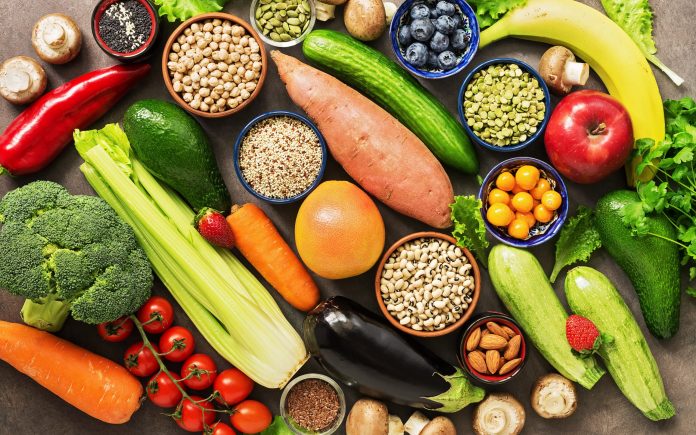
Embarking on an alkaline diet is among the easiest and most practical things you can do to maintain good health and prevent diseases. Advocates of an alkaline diet can’t overemphasize its importance. According to them, the overriding principle of the alkaline diet is that the nutrients, minerals and vitamins in alkaline-forming foods, water and supplements can help to bring the body back to its optimal state of equilibrium. This in turn, ensures that the lack of diseases and diseases and infuses the body with enormous energy and vitality.
Over-acidity
It’s usually considered that over-acidity from the body may lead to chronic health issues. Bacteria and viruses are believed to greatly thrive in an extremely acidic environment. In actuality, pH (potentiality to hydrogen) tests conducted on a lot of cancer patients afforded highly-acidic body milieu. In everyday life, an overly-acidic diet can manifest itself through fatigue, gum and teeth problems, pain and inflammation, and premature aging.
Alkaline diet benefits
- it could help your body absorb more of the vital vitamins, minerals and nutrients in their natural form. Consequently, it may help your immune system better withstand disease and foreign bodies which initiate body imbalances that cause illnesses.
- it might help provide the means by which your body can neutralize toxins and acids that might cause a mess in the blood, lymph, tissues, and cells.
- it could also aid in boosting energy and improving vitality to better allow your body to resist the everyday challenges and stress it undergoes.
- it could keep away different aches and pains. Pain in the different areas of the body is usually due to inflammation. This condition might be overcome by an alkaline diet rich in the mineral magnesium. As it’s known to support tissue and joint health, this might help ensure that arthritis, rheumatism and other pesky aches might be avoided.
Getting into an alkaline diet is as simple as gradually integrating several changes and modifications into your current diet. Though this transition requires a significant change in your attitude towards food, it’s important to see that the change can’t be implemented overnight. The key thing to remember is that little changes go a long way.
Steps toward an alkaline diet
- Consume more vegetables and fruits. Try to incorporate fruits and vegetables in each meal. During breakfast, ensure to eat a slice of apple or banana. It could be better to take them on an empty stomach. Drinking fruit juice rather than coffee can make it better. Try to incorporate some salad with a lot of green leafy vegetables during lunch and dinner.
- Decrease your intake of beef, pork or poultry and attempt to substitute fish (such as salmon, mackerel, trout, tuna) or turkey. The latter-named sources of protein comprise much less harmful fat and have more of the beneficial fats in them.
- Avoid eating processed foods like luncheon meats, canned fruits, breads, peanut butter, canned soups, hotdogs and sausages. You may also wish to prevent such condiments as ketchup, salad dressings with mayonnaise, cheese dips and so on. These are packed with acid-forming substances that might wreak havoc on your system once these are digested.
- Lower your intake of sugar and products made from sugar, like candies, ice cream, softdrinks, cookies, jams, doughnuts, puddings, chewing gum and so on. Foods with sugar will also be acid-forming.
- Lessen your intake of dairy products like milk, cheese, butter, in addition to eggs. These are largely acid-forming foods.
- Eat more grilled or roasted food and less fried foods. Fried foods generally have high levels of fat and are high in calories. These foods also tend to trigger increased acidity levels in the body as a result of chemical interactions of the oil and grease together with the food and other substances within the body.
- Spice up your food. Most spices such as garlic, basil, bay leaves, tarragon, thyme, coriander, dill, marjoram cinnamon, curry, ginger, cayenne pepper include antioxidant compounds and other phytochemicals which are helpful for your alkaline balance and for that reason, overall health.
- Increase your intake of alkaline-forming grains like quinoa, rye, brown rice, and amaranth because these are great sources of vitamins, minerals, and essential nutrients that form the foundation of a balanced alkaline diet.
- Drink herbal tea rather than coffee. Coffee is highly acid-forming and it might be smart to substitute such herbal teas such as chamomile tea, ginger tea, lemongrass tea, fennel tea and peppermint tea to help enhance alkalinity levels in the body.
- Drink a lot of water. Try to eat at least half of your body weight in ounces of very good quality of water every day. If at all possible, select spring water, mineral water or alkaline water. If you are taking tap water, attempt to bring a slice of lemon or lime as these have a tendency to boost the alkalinity of the water. Avoid drinking distilled water since it’s acid-forming.
Final words
Keep in mind though that an alkaline diet doesn’t indicate the lack of acid-forming food. An optimal balance of absorbing 80% alkalizing foods to 20% acidifying foods is a viable formula for maintaining healthy alkalinity levels. Too much of foods will lead to imbalance which will again trigger the onset of diseases, ailments, aches and pains.
So try to stick to the practical steps toward an alkaline diet mentioned above and these will gradually create the correct alkaline balance in your body. Remember that when your body’s pH levels are in balance, the body reaches the perfect weight and naturally corrects the adverse health challenges.





